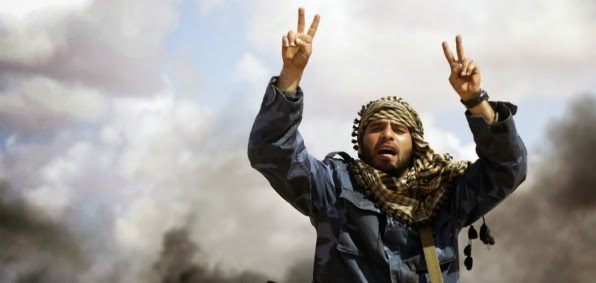European Union leaders are looking to back UN-brokered efforts to form a national unity government in conflict-torn Libya that may include a mission to help provide security.
EU foreign policy chief Federica Mogherini said Friday that her services are “planning all possible ways of supporting, even on the plan of security, a future national unity government”.
It is understood that Mogherini will brief heads of state and government across the European Union on the state of paly in Tunisia following an IS attack on the Bardo national museum.
The leaders will also discuss Libya, considered by the European Union High Representative as the most acute and dramatic crisis just across Europe’s maritime borders.
“It is a serious threat and needs to be tackled. I expect this morning from the leaders a strong mandate to explore all possible ways in which EU would not only support dialogue, but also its dialogue,” Mogherini said.
Maltese Prime Minister Joseph Muscat was quoted by Bloomberg as stressing the need for a UN mandate for a ‘policing’ intervention in Libya once agree to a national unity government.
“We would then have a European input, and not any single country on its own. We are inviting a unity government in Libya to ask for a resolution that would achieve a UN resolution,” Muscat said.
“We are seeking a ‘policing’ mandate, where critical infrastructure, including oil fields and sensitive buildings will be secured. It also includes a clampdown on migration.”
The Maltese PM said all this should be an EU initiative, mandated by the UN.
Muscat said he discussed Libya with Mogherini.
“We are in sync with Italy that it should not be just an EU intervention but a UN mandated ‘policing’ issue with the participation of Arab nations. Intervention will be non-combat but ’policing’. We understand also that there is also an alternative or Plan B in the pipleine should talks towards a unity government fail.”
EU leaders will offer support to the U.N. as talks between Libya’s divided factions unfold in Morocco, and task Mogherini to plan a range of options for backing a new government.
Libya’s political crisis has left the country with two parliaments and two governments, along with rival militaries and militias. The power struggle and fierce fighting has plunged the country into chaos and paved the way for the Islamic State group’s expansion.
But the EU would not act without an official request from the U.N. or an invitation from Libya itself, and many of the 28 member countries are reluctant to provide troops or resources while instability is rife and no unity government is in place.
Mogherini has said that the EU could launch a military and border operation in Libya, followed by a rule of law mission to help build up the police and justice system. Troops could be required to guard ports or airports and public buildings.
The Libya discussion during the March Summit takes place as Libya’s army chief Khalifa Haftar warned that Europe would face infiltration, if the West failed to support his forces with arms and ammunition.
“We want weapons and ammunition only. We have the men. The army is increasing in number every day,” Haftar told the Associated Press.
He warned that IS militants will “spread in even the European countries if (the West) doesn’t offer real help to the Libyan people, especially the Libyan army.” The extremists, he said, “will head with the illegal migrants to Europe, where corruption and destruction will spread just like Libya. But there it will be hard to confront them.”
The number of Islamic State militants has grown to an estimated 7,000 to 7,500, Hafter said, including fighters from African, Arab and Middle Eastern countries trained in Syria.
Libya’s elected government has appealed to the U.N. Security Council to lift an arms embargo and facilitate its request for dozens of fighter jets, tanks and other weapons it says it needs to fight the Islamic State group.



